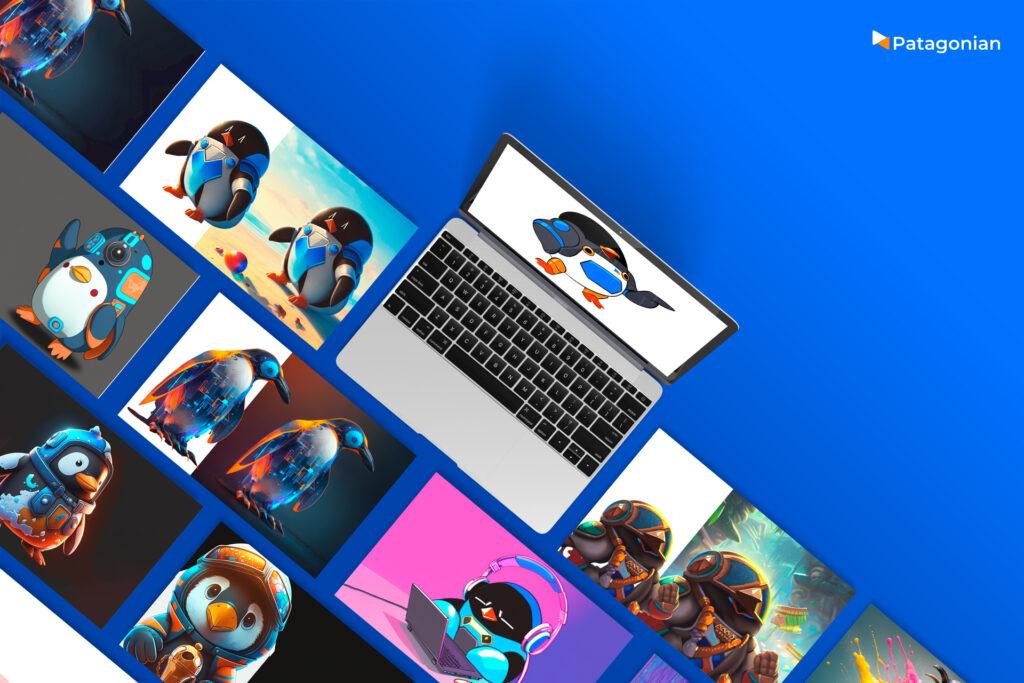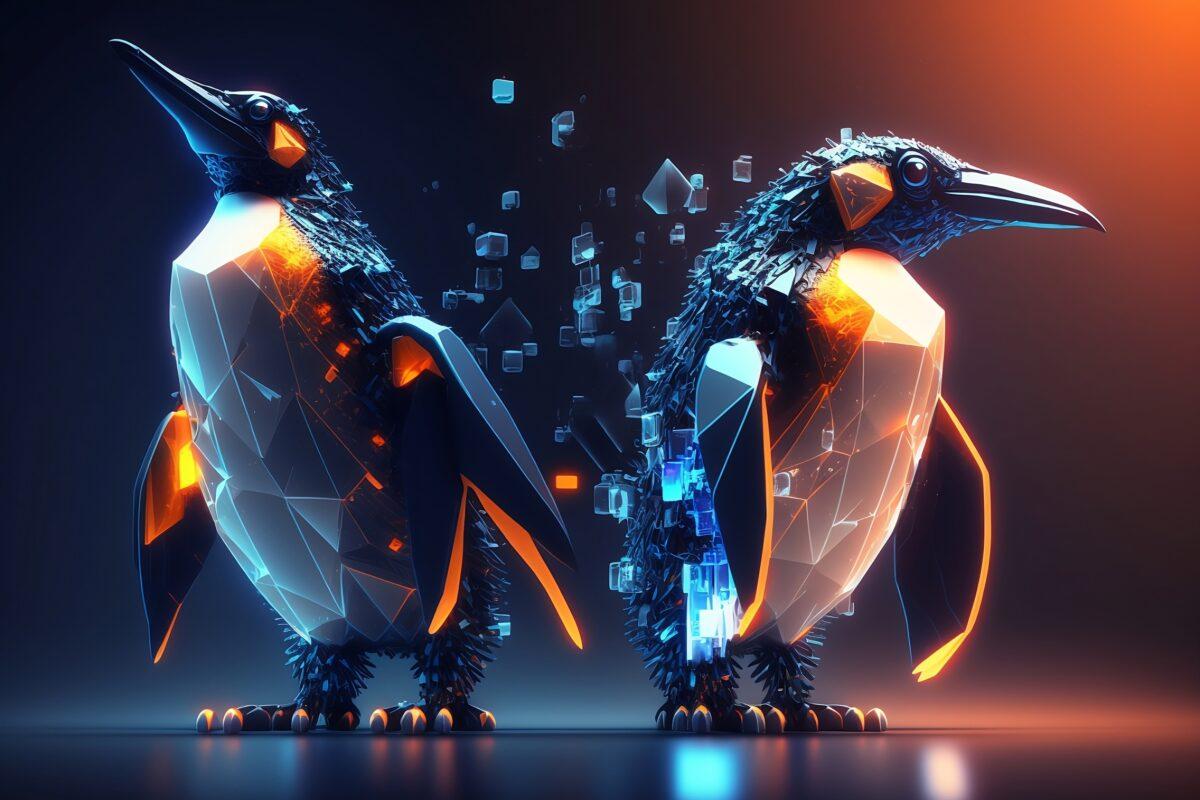As 2023 advances, it is becoming clear that Artificial Intelligence (AI) is the new disruptive force in the IT industry. Now, the role of AI in the workplace is raising important questions about the future of work.
In this article, we will discuss the most significant current developments and reflect on the impact of these changes on our industry and society as a whole. Whether you’re a developer, work in technology, or are simply interested in the latest technological advances, this article will provide an overview about the exciting and challenging world of AI.
Artificial Intelligence and its impact on the web: The new disruptive change
During the second half of 2021, virtual reality and augmented reality were expected to drive web development towards the metaverse. However, it seems like these technologies have not yet reached the necessary maturity.
On the other hand, although blockchain technology had the potential to lead the transformation towards Web3 and decentralization, for various reasons, this change has not yet been realized.
Now, in early 2023, Artificial Intelligence (AI) has positioned itself as the major driver of change in the web. In mid-2022, the first surprises came from AI image generators such as DALL-E 2, Stable Diffusion, and Midjourney, which allow users to generate unique and unrepeatable images via text. However, the true AI boom came at the end of November 2022 with the launch of OpenAI’s ChatGPT. It quickly became the fastest-growing application, breaking a record of 100 million monthly active users in just over two months. Not even the AI community expected a tool of such caliber, or at least not for several years.
This innovation has sparked our imagination, leading us to dream of a more modern and advanced version of the web. And as OpenAI‘s CEO Sam Altman said, “It’s a preview of progress.”
The new era of search engines: Artificial Intelligence and Chatbots
At the beginning of 2023, Google and Microsoft announced plans to incorporate Artificial Intelligence (AI) into their search engines, which seems to be the next innovative step in the technology field. Both companies seek to transform the internet from a world where we navigate between web pages to one where interactive discussions with chatbots provide us with information.
Microsoft has announced that AI will soon enable conversations with its software and search engine Bing. Google, in turn, has launched its own competitor called Bard, which is being tested with a small group of users.
Google has become a synonym for finding information online and controls over 90% of the search engine market. But thanks to its partnership with the creator of ChatGPT, OpenAI, Microsoft is in full attack mode. This competition has become a high-speed race, and as a result, we are likely to see an evolution in the way we search for information on the internet in the coming years.
Automation and the evolution of work
In recent decades, technology has advanced at a dizzying pace, and in the last year in particular, with progress in AI, it has accelerated even more. Everything indicates that this trend will continue in the future. In this context, one question always arises: Will artificial intelligence leave us without work?
Although this idea may sound concerning, it is important to remember that technology has always replaced jobs, and this trend is not new. In the past, manuscript copiers, who were responsible for copying texts by hand, were left without work with the invention of the printing press. Also, with advances in technology, telephone operators, who were responsible for manually connecting phone calls, suffered the same fate. Not to mention jobs in agriculture, where a century ago, over 50% of the world’s population was employed in agriculture-related activities, and currently, less than half of that percentage works in the agricultural sector. While the absolute number of workers has decreased, agricultural production has increased significantly thanks to technology, reducing costs and providing access to affordable food for the population.
In today’s world, the capabilities of artificial intelligence (AI) continue to impress us. Recent studies have demonstrated that AI has the potential to surpass the abilities of even the most highly skilled human professionals in certain fields. In medicine, for example, AI has proven to be more accurate than doctors in diagnosing certain diseases. For instance, a study published in Annals of Oncology in 2019, showed that an AI model was able to outperform radiologists in detecting lung cancer in chest CT scans. They can also pass exams at the most prestigious universities and perform calculations in a way that we cannot comprehend.
The rapid advancement of technology has revolutionized the way we work and live. While automation has displaced workers in many industries, and this trend is likely to continue, new and exciting roles have also emerged that require a unique set of skills.
There are fundamental human skills, such as empathy and creativity, that AI cannot replace. Those may be among the most valued skills in an increasingly automated work world.

Learning to work as a team with AI
Learning to play as a team with artificial intelligence will be the great challenge of the coming work world. And it’s crucial. In the fight against machines, it seems like we have no chance of winning.
But, in a way, it is like having the opportunity to welcome Messi into our team. Why would we compete against computers when they are the best player we can possibly have on our side?
Combining human and technological skills in a future where machines will have an increasingly relevant role will be fundamental. The best team will be the one that best balances the virtues of humans with the virtues of machines.
Conclusion
AI is quickly becoming the main driver of change on the web, and its impact on the world of work will become increasingly visible and relevant.
Learning how to work collaboratively with AI by utilizing the tools available in our work environment is essential, as it can enhance and complement human skills in ways never seen before, allowing us to improve our efficiency and accuracy and make more informed and informed decisions. It empowers us to be better designers and programmers, or even helps us write this article.
There are likely consequences that we have not yet considered, given that changes are and will be rapid (much faster than previous revolutions) and will impact all industries. Therefore, staying informed about these topics and using these new tools in our daily work could be the best tactic to prepare for an era where adaptation will be a very valuable virtue.

